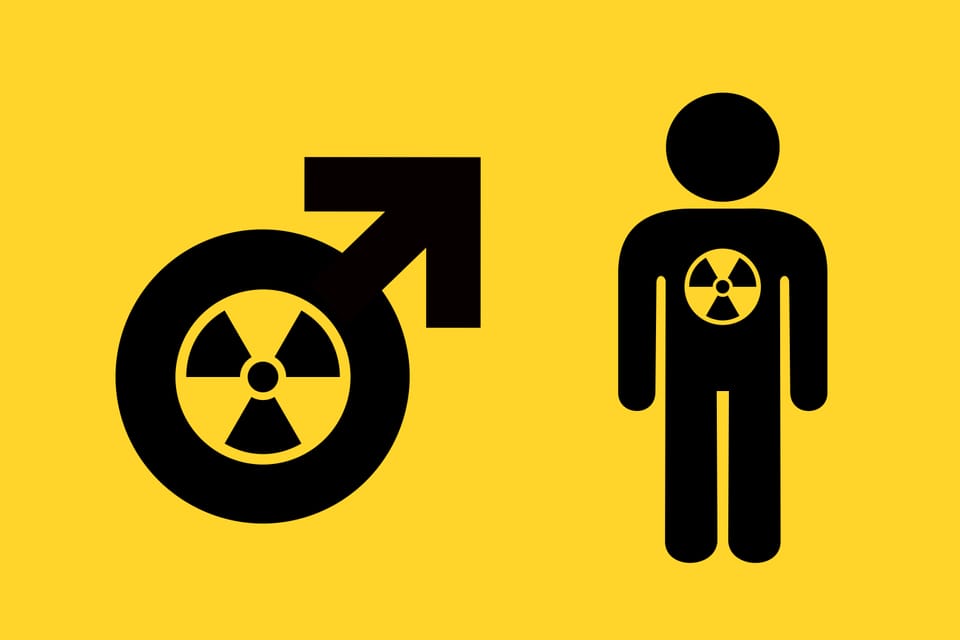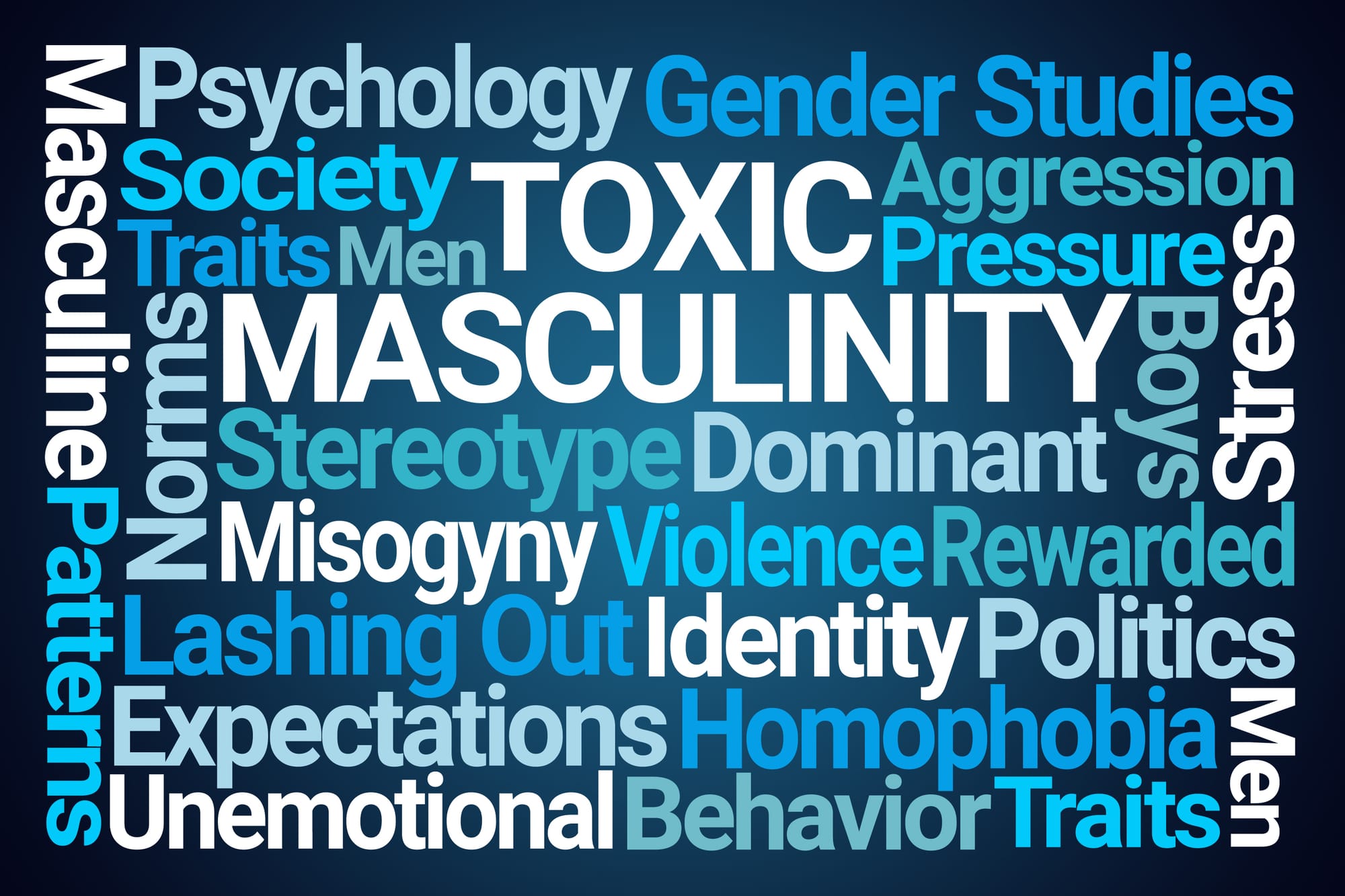This Isn’t Her Problem to Solve — It’s Ours

Let’s stop pretending we’re shocked.
Chloe Koyce was followed into a hotel in Dublin by a man she didn’t know. And this wasn’t random. He was lurking. Watching. Her friend noticed him circling outside, so she held the taxi door open just in case. That’s how on edge women are—they don’t even go inside until they know their friend is safely through the door.
There was maybe a second—maybe less—between Chloe stepping through the hotel door and her mate closing the taxi door. That’s when he slipped in behind her. Not by accident. By design.
He followed her across the lobby. Into the lift and didn't say which floor. At this stage he had taken off his belt...
And it could be easy to assume what that was meant to lead to.
Ella Deasy was harassed by 200 male students the moment she moved into student accommodation in Limerick. Why? Because she was visible. Because she existed online. Because a group of lads saw her not as a fellow student, but as someone to intimidate. They egged her house, screamed her name outside her window, sent each other videos like it was entertainment.
And still, people asked: Why did she post her location?
Let’s be clear. This isn’t isolated. This isn’t rare.
There is a gender-based violent crime problem in Ireland—and it is being driven, repeatedly, by Irish men.
74% of attacks are carried out by men.
That’s not opinion. That’s fact.
So no, this isn’t a women’s issue.
It’s a male issue.
A societal issue.
A patriarchy issue.
Our issue.
Women have done everything they can. Everything they shouldn’t have to.
They’ve built routines. Group chats. Shared locations. Fake calls. Coded language.
They text each other “Home safe?” like it’s a normal part of life—because for them, it is.
And even still—it keeps happening.
What Chloe and Ella did after? That matters.
They didn’t hide. They didn’t make it about themselves.
They spoke out about what happened so people would understand how common it is.
They didn’t ask for it.
They didn’t exaggerate it.
They just told the truth.
And that truth is brutal.
Because it’s familiar.
They could’ve stayed silent. They didn’t.
And because of that, people are paying attention.
So now what?
What do we do?
Because I’ll say it again—this is not theirs to fix.
It’s ours.
We need more men stepping up. And not in the performative way.
We need more men who speak up when it’s awkward.
More men who shut things down when the tone shifts.
More men who understand that the stuff said in private—the jokes, the comments, the harmless banter—is often where the danger starts.
Words matter, yes. But only when they’re followed by action.
So speak louder.
Act faster.
Intervene sooner.
Behind closed doors. In the group chats. In the background noise where most of this begins.
Because if your mate’s being a creep in the DMs, or catcalling someone from a car, or sending some video in the WhatsApp group that crosses the line—and my firm belief... if you stay quiet?
You’re part of the problem.
And don’t come back with “it’s not all men”. I am a man, I wouldn't do this, it is not the f**king point. Men have caused this... again and again and again.
If 74% of attacks are by men, and most of us aren’t doing it—then why aren’t we stopping the ones who are?
If it was your sister, your daughter, your girlfriend—you’d lose your mind.
So why do we let it slide when it’s someone else’s?
Because that’s the real question.
Why are we more outraged when it happens close to home, and indifferent when it happens to someone we don’t know?
It shouldn’t take proximity to care.

Now here’s the part we’re not talking about enough:
toxic masculinity is on the rise, and we’re not doing enough to stop it.
It’s not just creeping in—it’s marching forward.
It’s rebranding itself as confidence. As dominance. As strength.
But it’s none of those things.
It’s cowardice.
It’s entitlement.
It’s fear disguised as power.
And if we don’t name it now, it becomes the blueprint.
We end up raising another generation of boys who think this is how you act.
Who confuse control with confidence.
Who think power is proven by how much you take from someone else.
We don’t have enough good male role models showing what real leadership looks like.
We need more men showing you can be strong without being violent.
That you can be respected without making women feel small.
That you can be powerful without being predatory.
There are more women than men in the world.
And no man would be here without one.
That’s not philosophy. That’s biology.
So what are we doing?
What are we modelling for the next generation of boys?
What are they learning from the silence?
What are they picking up from the jokes we don’t challenge?
From the lads we let away with it?
From the girls they see blamed, again and again, for the crimes committed against them?
We can’t solve what we won’t name.
And we can’t fix what we won’t own.
This isn’t a call to action.
This is a statement of responsibility.
It’s on us.
It’s always been on us.
So speak louder.
Act faster.
Intervene sooner.
Behind closed doors. In the comments. In real life.
Don’t wait for the next headline.
Don’t wait until it’s someone you know.
Because if we don’t step in now—
we won’t just be complicit.
We’ll be the reason it keeps happening.
Until Next Time,
Shane


